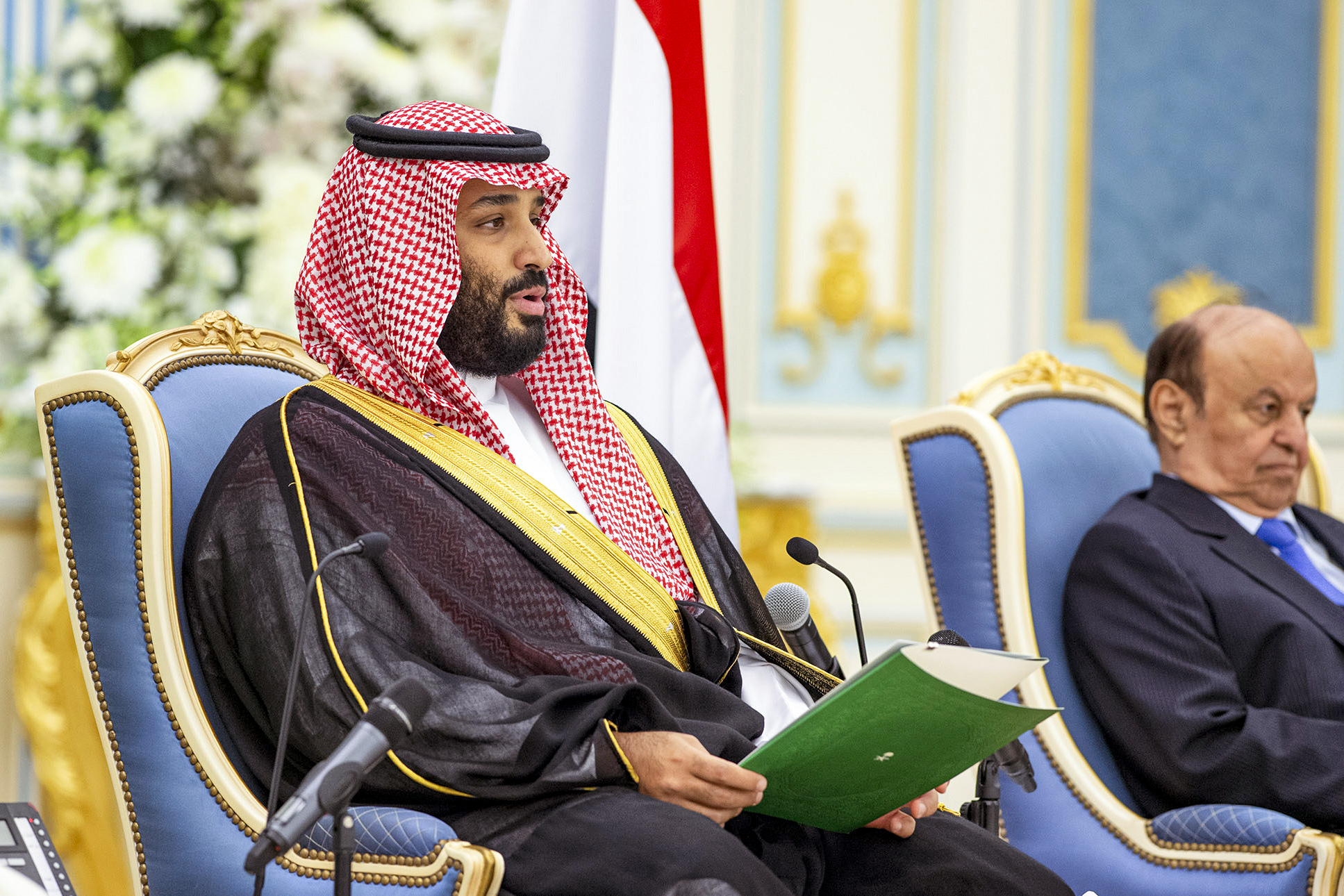- Crown Prince Mohammed bin Salman says agreement will open new period of stability in Yemen
- The ceremony was attended by Yemen's President Abed Rabbo Mansour Hadi and STC leader Aidarous Al-Zoubeidi, along with Abu Dhabi Crown Prince Mohammed bin Zayed
RIYADH: Saudi Crown Prince Mohammed bin Salman on Tuesday hailed “a new period of stability in Yemen” as a power-sharing deal was signed in Riyadh between southern separatists and Yemen’s internationally recognized government.
“This agreement will open, God willing, broader talks between Yemeni parties to reach a political solution and end the war,” the crown prince said at a televised signing ceremony.
“The kingdom of Saudi Arabia stands with you. It’s a joyful day … as the two sides come together.”
The agreement calls for the separatist Southern Transitional Council (STC) to be included in any political negotiations to end Yemen’s four-year war, and for all military and security forces to be incorporated into the defense and interior ministries.
A new cabinet will be formed, with the STC given several ministries, and the government of President Abed Rabbo Mansour Hadi will return from Riyadh to Aden.
Hadi took part in the signing ceremony on Tuesday with STC leader Aidarous Al-Zoubeidi, watched by Prince Mohammed and Sheikh Mohammed bin Zayed Al-Nahyan, the crown prince of Abu Dhabi.
The signing of the agreement in the presence of the Saudi and Abu Dhabi crown princes was of profound significance, Saudi political analyst Dr. Hamdan Al-Shehri told Arab News.
“This is proof of the fact that the two leaderships are on the same page on Yemen,” he said. “It indicates that the agreement is built on solid foundations, and that it will have the desired positive effect on the ground among the Yemeni people.”
The agreement would allow both sides in southern Yemen to concentrate on combating the Iran-backed Houthi militias, Al-Shehri said.

Crown Prince Mohammed bin Salman next to Yemen's President Abedrabbo Mansour Hadi attending a peace-signing between the Yemeni government and the southern separatists. (Saudi Royal Palace)
“All Yemeni parties realize that their security and stability are paramount, and they realize there is an enemy lurking. Therefore, uniting their efforts against the common enemy is crucial,” he said.
The UN special envoy for Yemen, Martin Griffiths, congratulated the two sides on the deal, which he said would propel efforts to end the wider civil war that has devastated the country.
“The signing of this agreement is an important step for our collective efforts to advance a peaceful settlement to the conflict in Yemen,” he said. “Listening to southern stakeholders is important to the political efforts to achieve peace.”
Yemeni expatriates in Saudi Arabia also welcomed the agreement. “The Kingdom has always respected the will of Yemenis without exception and supported our country politically, economically, militarily and developmentally,” said Farouk A. Mohammed, a translator at an accounting company.
The deal would have a significant impact on Yemen’s political and economic stability, and contribute to unifying Yemenis in fighting the Houthis, he said.
Hussam Ahmed, a motor sales, welcomed the rejection of discrimination and division. “I’m glad the agreement calls for fighting and eventually eradicating all forms of corruption in all state agencies, while promoting security and stability in government institutions,” he said.

